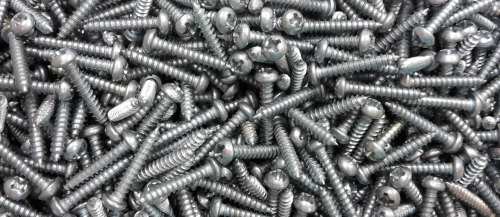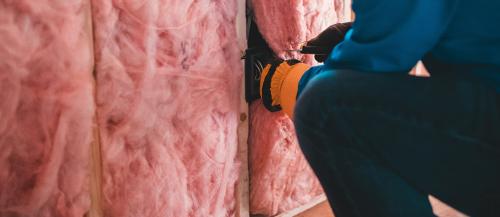Here at BS Fixings, we are experts in the fixing and fastening industry, as our brand name suggests! We stock a broad range of fixing products, including drill bits, nails, and of course screws. Screws are one of the most utilised fixing items, used for all sorts of construction, building, and DIY tasks. However, due to their high demand, they have been manufactured into all shapes and sizes to better match a variety of projects.
Screws are designed with different heads, threads, tips, and drives, to be used for a multitude of tasks. We stock a variety of stainless steel screws on our website, all of which are high-quality and created to perform to the highest standards. We know that finding the correct screw for your application can be overwhelming, so we have created this blog post to help you out! A very common type of screw is the self-tapping type, which can be used to fix wood, plastic, and metal materials together.
Self-tapping screws are slightly different to traditional screws, as they tap their own threads when being screwed into the desired material. They are particularly useful for fixing two materials together, or in locations where only one side can be reached. If you need to disassemble and reassemble products such as canopies and furniture, self-tapping screws will reposition themselves into the original threads that were created, making them attractive for numerous projects.
Thread-forming vs Thread-cutting
When choosing self-tapping screws, there are two variations to look out for, thread-forming and thread-cutting.
Thread-forming screws tend to have a blunt tip, which will need a pilot hole drilled beforehand. The initial hole should be slightly smaller than the width of the screw, for the screw to work effectively. Due to their flat tip, thread-forming screws are useful for joining plastic materials together, as they slightly deform the surface which creates a tighter fixing.
Thread-cutting screws do not need a pre-drilled hole, as they are created with a sharp pointed tip. For ease of use, you can drill a pilot hole, but it is not necessary. As a result of their piercing end, thread-tapping screws are the preferred choice for wood and metal. This type of screw works by removing a small amount of the surface material, producing a threaded path for the screw to enter. In some cases, thread-cutting screws can cause stripping when removed, if this happens, simply use a larger threaded screw to reattach the product.
Types of Self-tapping Screws at BS Fixings
Countersunk
Countersunk screw heads allow for a smooth and flush finish, designed to fix below the surface of the material. The Pozi Countersunk Self-Tapping Screws we supply are manufactured out of A2 stainless steel and are coating in zinc for extra corrosion resistance.
Pan head
We stock a variety of pan head self-tapping screws on our website, which are typically used for high torque installations into metal or wood. The pan head is slightly bulkier than the countersunk type, with a rounded top and vertical sides.
Hex head
The Goebel A2 Slotted Hex Head Self-Tapping Screw (EPDM Washer) is ideal for heavy-duty purposes, where a flush finish is not required. The hexagonal head is perfect for wood, metals and hard plastics.
All of the self-tapping screws we have on offer are available in a range of lengths, heads, and drive types. If you are looking to purchase this style of screw, you need to consider the thickness of our desired material, to ensure the screw tip enters the material before the threading. If you need further information about self-tapping screws or the other products we stock, please contact us today on 03330 117818 or email info@bsfixings.co.uk and we will be more than happy to help!






